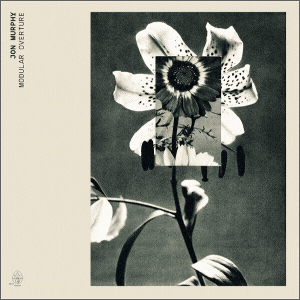There is something about Skinny Puppy that is tribal. It’s like they were able to draw something out of the terroir of the land they grew up and lived on and infused that Cascadian vibe into the music.
The terroir of music
I never thought I’d get to see Skinny Puppy live. Back in 1999 when I first became a fan of the band, around the age of twenty, they had fallen into an inactive stasis. At that time their last album had been The Process. The album was marked by several production and recording issues that had largely been absent from the collaborative spirit felt by the members on previous albums and punctuated by the death of Dwayne Goettel. The band dissipated, but cEvin Key kept busy with his Download project. Download had been my first entry point towards Skinny Puppy anyways. The other entry point had been The Tear Garden. This group had been formed by cEvin Key with Edward Ka-Spel from The Legendary Pink Dots—still one of my favorite experimental-psychedelic-goth bands ever. The Tear Garden featured a lot of other members from both Skinny Puppy and The Legendary Pink Dots, and I was obsessed with the Dots and Tear Garden at the time. Listening to Skinny Puppy back then was part of retracing cEvin Keys first steps, and I fell in love with what I heard.
I lost track of Skinny Puppy’s output until Weapon came out in 2013. Later still I backed-tracked again to listen to the three albums they put out between 2004 and 2011. Of those, I think HanDover may be my favorite. I still followed along with Key here and there and was delighted a few years ago when The Tear Garden put out The Brown Acid Caveat, wonderfully lysergic, if a bit of a bum trip. Yet if it hadn’t been for the darkness and melancholy, I don’t know if I would have listened in the first place.
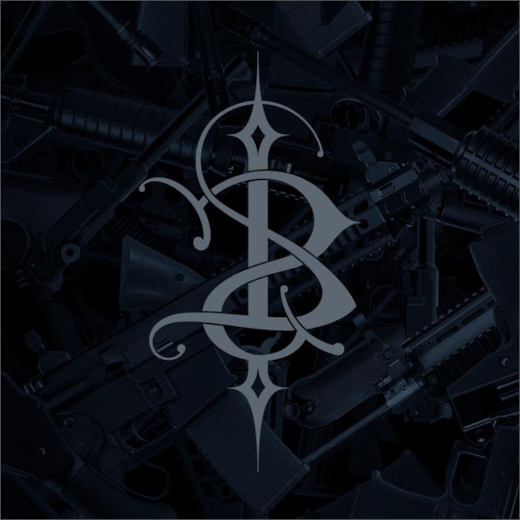
When I first heard Skinny Puppy was going on tour, I got terribly excited and made sure to get a ticket as soon as I could. The tour was slated at their 40th anniversary and Final Tour, so now was the chance to go if I was going to go. By the time the Friday of the show rolled around, my anticipation was peaking. I’d done my homework over the past few weeks and gone back and re-listened to some of my old favorite songs and several favorite albums, along with some of the others I’d never listened to as often. When I saw the line to get inside Bogart’s was going all the way down the short side of Short Vine, down Corry St. towards Jefferson, I realized I was going to be standing in the longest line I’d ever been in for a concert at Bogart’s. The only others I can remember that were maybe as long were for my first punk show ever, Rancid with The Queers, or later, Fugazi.
Being in line for this show was similar to that first concert I went to as a young and aspiring skater punk: I felt a sense of unity being there with a bunch of misfit freaks. I felt at home, and normal for a couple hours. I was also happy to know that: Goths Not Dead.
Goth may not be in the same advanced and glorious state of gloom and decay as was when Charles Baudelaire roamed the streets Paris, or when Edgar Allan Poe rued America’s imagination, but those who love the imagery of death are very much alive. Also, I’ve never seen so many Bauhaus and Peter Murphy T-Shirts in one place.
Granted, a lot of these goths were aging goths and rusting industrial music rivet heads. A large contingent seemed to be middle-aged like me, in their forties, but others were in their fifties, sixties and a few beyond. I wasn’t sure how many newer fans Skinny Puppy had generated but there were a lot of young people too. These included the children of just-now-having-kids Gen Xers and older Millennials who had brought several 6- to 10-year-olds to join in the fray. I guess that shouldn’t have been surprising to me, as I had taken my grandson, then about nine, to see Lustmord when he came to Columbus to do a set at the CoSci Planetarium. Either way, it was good to see that the intertwined Gothic and Industrial subcultures are not only still alive, but apparently reproducing.
It was good to see that the intertwined Gothic and Industrial subcultures are not only still alive, but apparently reproducing ::
The show had sold out and inside the place was packed. It seems obvious that industrial music still resonates. Even as the industrial system that inspired this type of music has long been in decline, our society still grapples with its aftereffects. Machines have wreaked havoc on human relations, and industrial music still grapples with our relationship troubled relationship to technology.
The opening band Lead Into Gold made some pretty mean electronic cuts. I liked all the instrumental aspects of the band, and they had some chest thumping bass. I’m glad I don’t need a pacemaker, because if I did, I would have worried it might get jarred loose from the vibrations. This was the side project of Paul Barker, aka Hermes Pan, former bassist for Ministry, and as such I can see why it left me a bit in the middle. Ministry had reliably been a band I always felt stuck in the middle on. I didn’t much care for the vocal side of Lead Into Gold’s performance and they did little to interact with the audience. They weren’t bad, I just would have liked them better sans vocals.
During the intermission the palpable pressure continued to build until the lights dimmed, the members of Skinny Puppy came on stage, and the first strains of “VX Gas Attack” slipped out of the speakers. The song uses the sampled word “Bethlehem” among others, and I knew was in embattled holy land for the duration of the concert.
Ogre started off behind a white screen, singing, doing shadow puppet maneuvers, as his growls and inflections pummeled the gathered masses, the drums assaulted, and electronics laid everything in a thick bed. By the time the third song “Rodent” came on, Ogre was out from behind the veil, wearing a long dark cloak, face covered in shadows.
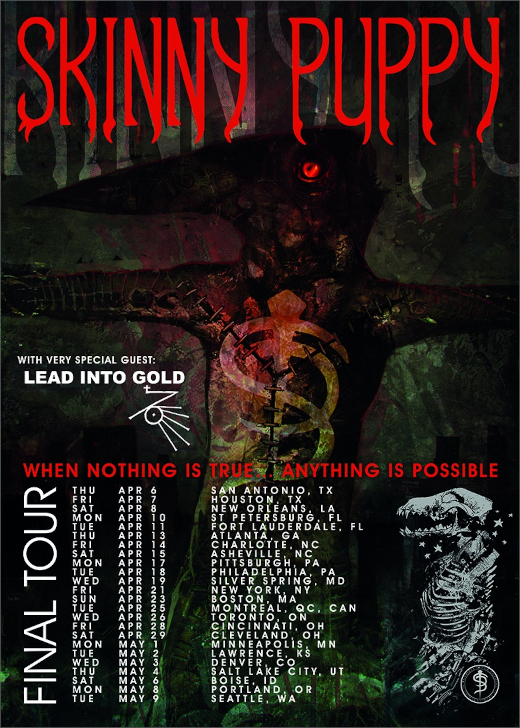
Then the cloak came down to reveal Ogre as an alien with green lit up eyes that pulsed down on the audience. Another player prowled the stage with him, brandishing a kind of cattle prod or taser. Whatever little sanity was left in the crowd disappeared. The alien wasn’t here to torture us earthlings but had come and gotten tortured as an alien. The alien hadn’t come to earth to abduct, torture or experiment on any in the crowd, but had come down and was now subject to being prodded, probed, manipulated, and perhaps even vivisected at the hands of humans. I saw this aspect of the performance as a perfect metaphor for our own situation at this time within the larger culture; this time where we are more alienated from each other than we have ever been before, at least in my memory as a tail end Gen Xer. We live in a time of massive projection, of what Carl Jung called “the shadow.” These are the blind spots of our psyches, the places where all the things we refuse to acknowledge got to live. In our society, with all the things we repress and suppress, the contents of the shadow are bound to bubble up as a kind of crude oil used to fuel both sides of the forever culture wars. Since we refuse to look in the mirror at our own shadows, at the alien inside of us, we must find that alien other, prod, tase, torture and beat them down.
I had expected to see a montage of horror movie clips projected behind the band, the kind of stuff that might traumatize me for the rest of my life. That wasn’t part of the show, but it didn’t need to be. They did use abstract imagery behind them, but the interaction between Ogre and the cattle prodder on stage was more than engaging.
Now, I love Ogre’s vocals, but the main draw for me as a Skinny Puppy fan has always been the electronic wizardry of cEvin Key. It was fun to watch Key playing, but as I got jostled about in the slew of people, I at first couldn’t see him so well. I was finally able to get into a spot where I could see all the players doing their thing. This leads me to the drummer. I hadn’t expected to see one there. Previous accounts of their live shows noted the use of drum machines. The live drummer was a real plus to the overall experience of the event. He beat the hell out of those drums and the sound was great, matching up expertly to all the songs.
Eventually as the music at the show built to the first climax a giant brain was brought out on stage, and the player with taser or cattle prod went straight at it, hitting the brain in rhythm, just like the electrical pulses from the music pulsed my own head. As the concert wound down they took the music all the way back to the beginning with “Dig It,” the last song before the first encore.
When they came back on stage, it was just Key and the guitarist Matthew Setzer, engaging in an electronic jam or “Brap.” This could have gone on a lot longer in my opinion. These extended freak-out sessions were some of my favorite output of material from their archives.
Then Ogre came back out without his costume and ripped into “Gods Gift (Maggot)” before launching into “Assimilate.” A second encore brought them back with another oldie “Smothered Hope” and they ended the whole thing with their more recent song “Candle.”
There is something about Skinny Puppy that is tribal. It’s like they were able to draw something out of the terroir of the land they grew up and lived on and infused that Cascadian vibe into the music. Last year I listened to an interview done by cEvin Key with his fellow Vancouver friends Bill Leeb and Rhys Fulber (of Front Line Assembly, Delerium). They were talking about the scene in the early days, as the Canadian iteration of industrial music developed with the birth of Skinny Puppy. Key talked about being able to walk to anything that was happening, and not needing a car, and how that was an advantage of those early days in the late 70s and early 80s.
The kind of industrial music that came out of Vancouver had its own flavor ::
It got me thinking, as they bantered back and forth about taking drugs, walking around with big poofed up hair, kind of like a gothed-out version of glam, of how tribalistic that scene must have been for them. The creativity that was coming to them seemed to come not only from the music they were listening to that was inspiring them (Nocturnal Emissions, Throbbing Gristle, early electronics, lots of punk) but also the energy of the land itself. The kind of industrial music that came out of Vancouver had its own flavor. It only could have come from there, as the consciousness of the land spilled into the people making the music. This idea about the terroir of music was later borne out by another interview I listened to on Key’s YouTube channel, about the making of the album Too Dark Park—and one of the Vancouver parks the members of the band spent a lot of time hanging out at, and the ancient Native American burial sites within the park.
I was grateful to be able to share this tribal experience with the band on stage and feel the sense of camaraderie with the others in the crowd. All these weeks later I am still going back and forth over it in my head, assimilating the download of their specific style of industrial sound, born in Vancouver and spread around the world.
Photos by Bogart’s
Original article: Sothis Medias — reprinted with permission
Visit Skinny Puppy at skinnypuppy.com.






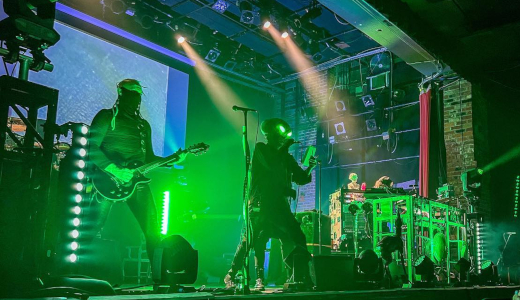



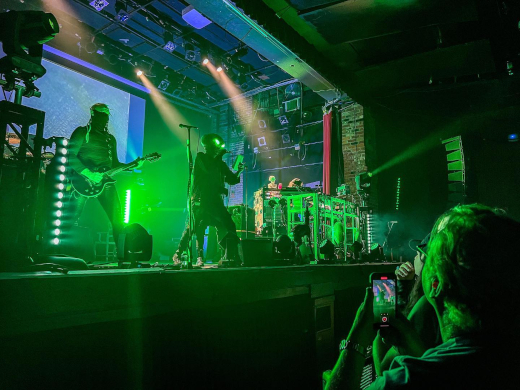
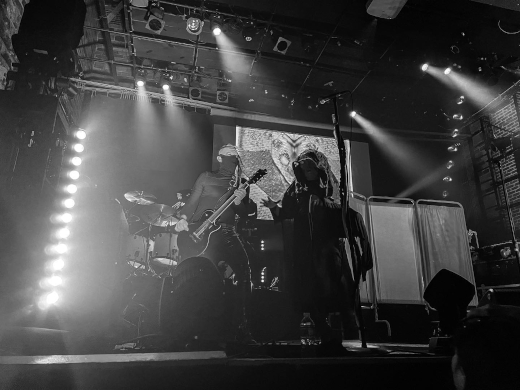
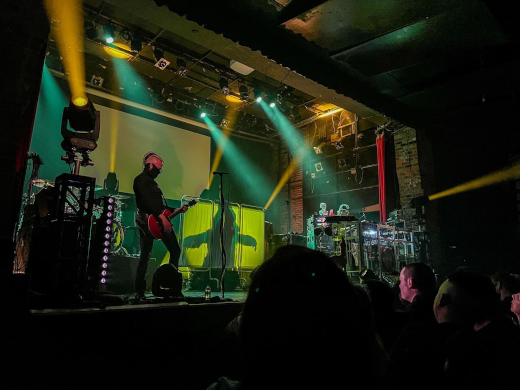
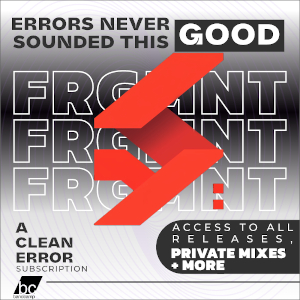
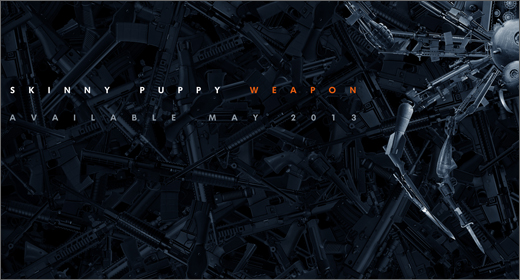
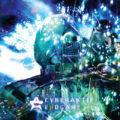
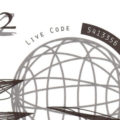
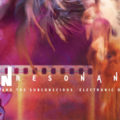
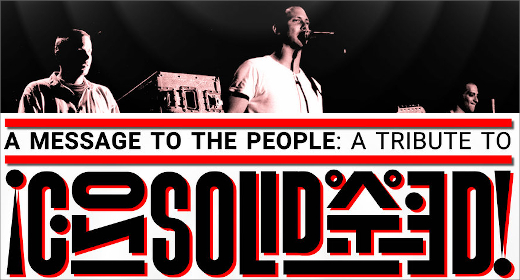
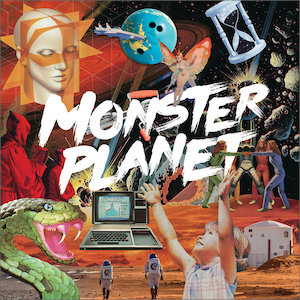






![Allmanna Town :: 1911 EP (Self Released) — [concise]](https://igloomag.com/wp/wp-content/uploads/2025/03/allmannatown-1911_feat2-75x75.jpg)


